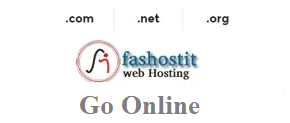
A case in point: “On Tuesday, the Central Bank of Nigeria (CBN) directed banks to pay at least 4.65% interest on savings deposit accounts; a remarkable move which is believed will motivate depositors to save.”
Follow me. The government had already jacked up interest rates to fight inflation: “The Central Bank of Nigeria’s monetary policy committee raised its policy rate again as inflation reached its highest level in 17 years. The MPC ordered a 150 basis point increase in its monetary policy rate on September 27, to 15.5%, its third increase since May, when the rate was 11.5%.”
When rates are raised in Nigeria, companies suffer significantly since our consumer credit system does not exist. In other words, people are not directly affected by rates since no one is lending to consumers. Rather, companies are the ones affected since they remain a huge chunk of borrowers within the financial system. When rates go up, companies increase prices of products to cover the extra cost of production.
Tekedia Mini-MBA edition 14 (June 3 – Sept 2, 2024) begins registrations; get massive discounts with early registration here.
Tekedia AI in Business Masterclass opens registrations here.
Join Tekedia Capital Syndicate and invest in Africa’s finest startups here.
(This contrasts with US and Europe with solid consumer lending where rates can reshape consumer spending. In Nigeria, it is marginal and only relevant for fighting inflation.)
Possibly, the central bank wanted to use the “gains” from the savings accounts to help consumers. So, if you make money from your savings accounts, you can use that to deal with the expected extra costs of things when you shop. The problem is this: many Nigerians have nothing in their bank accounts: “99.4 % of bank accounts contain less than N500,000” according to Nigeria Deposit Insurance Corporation.
Run the numbers and you will see that only 0.6% of depositors will benefit significantly. If you do have the N500,000, you get about extra N2,000 per month. But the problem is clear: in that 99.4%, more than 90% may not have more than N100,000 in their bank accounts. So, in the end, this may not be very significant.
Way forward? I have noted that CBN should push for legislation that would make reporting of credit data mandatory so that within ten years, our consumer lending will deepen. If not, it will remain a guesswork! Yes, the poor will not get any benefit (they have nothing to save) from this policy while big people suddenly get blessed!
I have noted that CBN should push for legislation that would make reporting of credit data mandatory so that within ten years, our consumer lending will deepen. When you do that, you can use rates to influence consumption. Imagine instead of increasing rates on savings (few save), you have more options that can get directly to consumers.
“The IADI Core Principle No. 8 on coverage limits specifically requires that the thresholds should be limited, credible with the capacity to fully cover substantial majority of bank depositors while the rest remain exposed to ensure market discipline. Deposit insurance coverage should also be consistent with the deposit insurance system’s public policy objective.
“In addition, the coverage limits are not designed to be static but subject periodic reviews to ensure that they are consistent with the public policy objectives of the Deposit Insurance System. The Corporation successfully reviewed upward the coverage limits from N50,000 at inception in 1989 to N200,000 in 2006 and N500,000 in 2010.
“The implication of this is that in the event of failure of a bank, above 97% of depositors would be fully covered by the Corporation.
“From the foregoing statistics, it could be observed that the Corporation’s deposit insurance coverage limits are not only adequate but robust enough to engender confidence in our banking system.”
---
Register for Tekedia Mini-MBA (Jun 3 - Sep 2, 2024), and join Prof Ndubuisi Ekekwe and our global faculty; click here.










The only way forward is for the current managers to leave, nothing else can make sense.